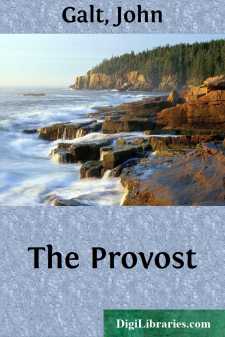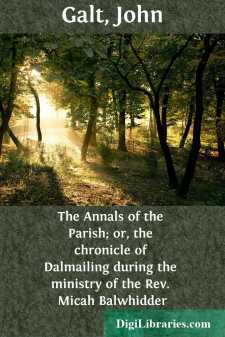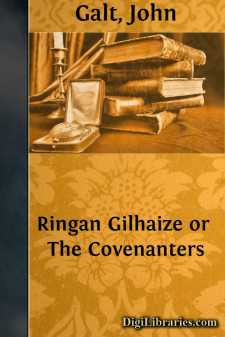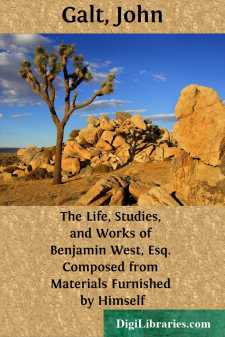Categories
- Antiques & Collectibles 13
- Architecture 36
- Art 48
- Bibles 22
- Biography & Autobiography 813
- Body, Mind & Spirit 142
- Business & Economics 28
- Children's Books 15
- Children's Fiction 12
- Computers 4
- Cooking 94
- Crafts & Hobbies 4
- Drama 346
- Education 46
- Family & Relationships 57
- Fiction 11829
- Games 19
- Gardening 17
- Health & Fitness 34
- History 1377
- House & Home 1
- Humor 147
- Juvenile Fiction 1873
- Juvenile Nonfiction 202
- Language Arts & Disciplines 88
- Law 16
- Literary Collections 686
- Literary Criticism 179
- Mathematics 13
- Medical 41
- Music 40
- Nature 179
- Non-Classifiable 1768
- Performing Arts 7
- Periodicals 1453
- Philosophy 64
- Photography 2
- Poetry 896
- Political Science 203
- Psychology 42
- Reference 154
- Religion 513
- Science 126
- Self-Help 84
- Social Science 81
- Sports & Recreation 34
- Study Aids 3
- Technology & Engineering 59
- Transportation 23
- Travel 463
- True Crime 29
The Provost
by: John Galt
Description:
Excerpt
INTRODUCTION
During a recent visit to the West Country, among other old friends we paid our respects to Mrs Pawkie, the relict of the Provost of that name, who three several times enjoyed the honour of being chief magistrate in Gudetown. Since the death of her worthy husband, and the comfortable settlement in life of her youngest daughter, Miss Jenny, who was married last year to Mr Caption, writer to the signet, she has been, as she told us herself, “beeking in the lown o’ the conquest which the gudeman had, wi’ sic an ettling o’ pains and industry, gathered for his family.”
Our conversation naturally diverged into various topics, and, among others, we discoursed at large on the manifold improvements which had taken place, both in town and country, since we had visited the Royal Burgh. This led the widow, in a complimentary way, to advert to the hand which, it is alleged, we have had in the editing of that most excellent work, entitled, “Annals of the Parish of Dalmailing,” intimating, that she had a book in the handwriting of her deceased husband, the Provost, filled with a variety of most curious matter; in her opinion, of far more consequence to the world than any book that we had ever been concerned in putting out.
Considering the veneration in which Mr Pawkie had been through life regarded by his helpmate, we must confess that her eulogium on the merits of his work did not impress us with the most profound persuasion that it was really deserving of much attention. Politeness, however, obliged us to express an earnest desire to see the volume, which, after some little hesitation, was produced. Judge, then, of the nature of our emotions, when, in cursorily turning over a few of the well-penned pages, we found that it far surpassed every thing the lady had said in its praise. Such, indeed was our surprise, that we could not refrain from openly and at once assuring her, that the delight and satisfaction which it was calculated to afford, rendered it a duty on her part to lose no time in submitting it to the public; and, after lavishing a panegyric on the singular and excellent qualities of the author, which was all most delicious to his widow, we concluded with a delicate insinuation of the pleasure we should enjoy, in being made the humble instrument of introducing to the knowledge of mankind a volume so replete and enriched with the fruits of his practical wisdom. Thus, partly by a judicious administration of flattery, and partly also by solicitation, backed by an indirect proposal to share the profits, we succeeded in persuading Mrs Pawkie to allow us to take the valuable manuscript to Edinburgh, in order to prepare it for publication.
Having obtained possession of the volume, we lost no time till we had made ourselves master of its contents. It appeared to consist of a series of detached notes, which, together, formed something analogous to an historical view of the different important and interesting scenes and affairs the Provost had been personally engaged in during his long magisterial life. We found, however that the concatenation of the memoranda which he had made of public transactions, was in several places interrupted by the insertion of matter not in the least degree interesting to the nation at large; and that, in arranging the work for the press, it would be requisite and proper to omit many of the notes and much of the record, in order to preserve the historical coherency of the narrative. But in doing this, the text has been retained inviolate, in so much that while we congratulate the world on the addition we are thus enabled to make to the stock of public knowledge, we cannot but felicitate ourselves on the complete and consistent form into which we have so successfully reduced our precious materials; the separation of which, from the dross of personal and private anecdote, was a task of no small difficulty; such, indeed, as the editors only of the autographic memoirs of other great men can duly appreciate....





